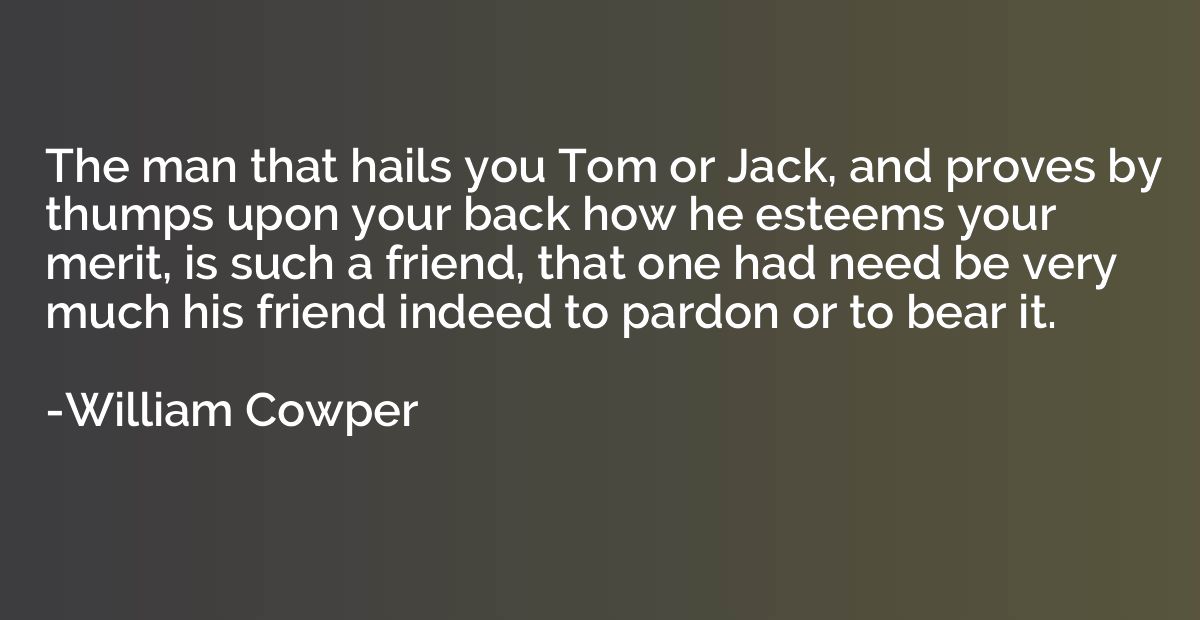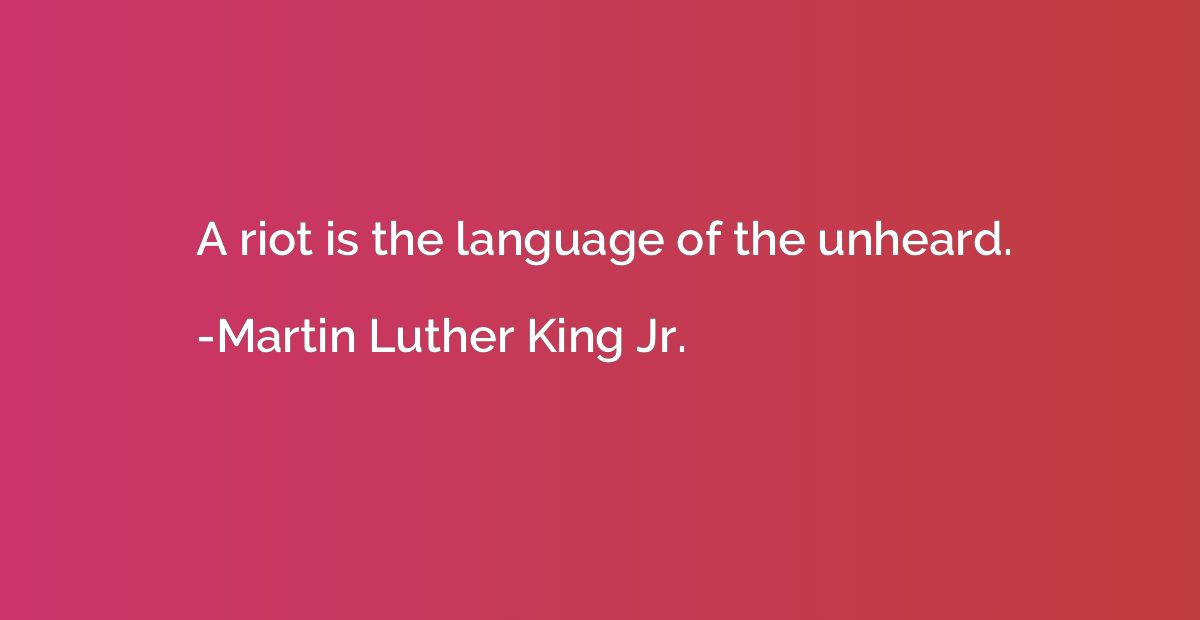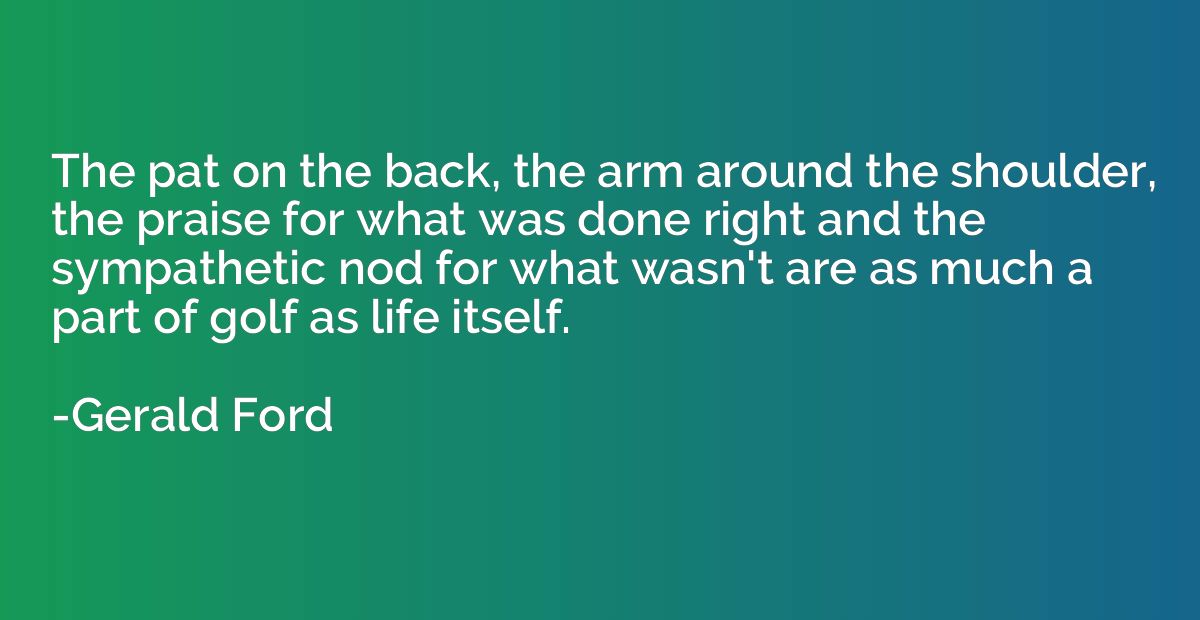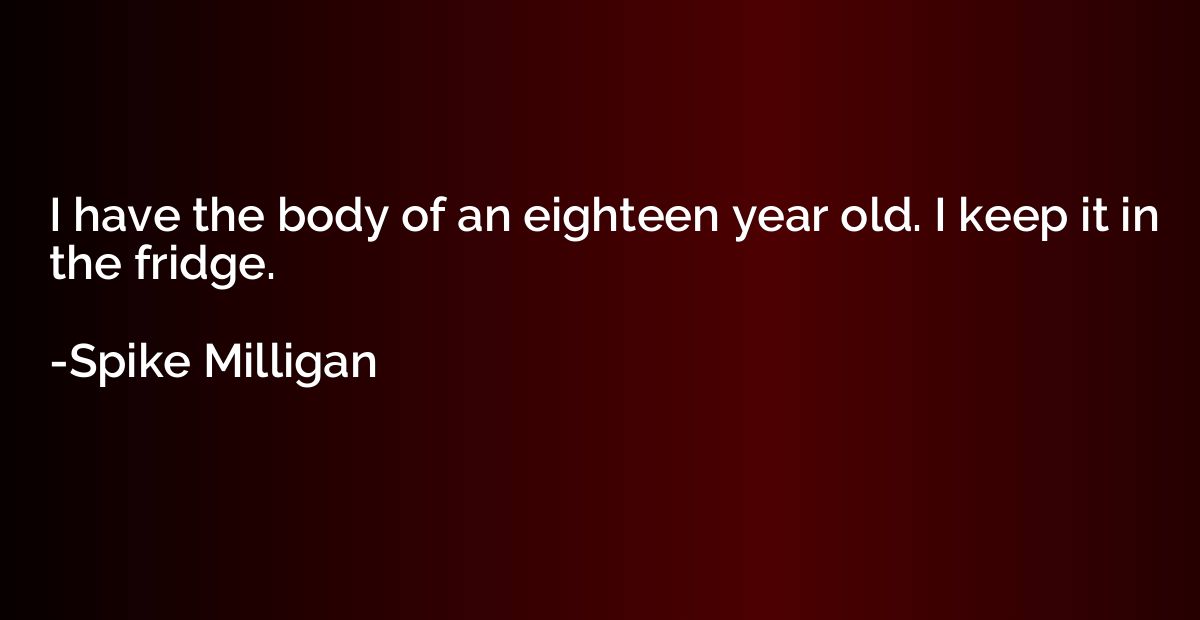Quote by William Cowper
The man that hails you Tom or Jack, and proves by thumps upon your back how he esteems your merit, is such a friend, that one had need be very much his friend indeed to pardon or to bear it.

Summary
This quote suggests that a true friend is someone who openly shows their appreciation and affection towards you, even if it may be excessive or rough at times. They value your worth and express it physically, such as with thumps on your back. To tolerate or accept these actions, a person must truly consider themselves a close friend to that individual. It emphasizes that genuine friendship requires understanding, forgiveness, and a mutual affection that surpasses any surface interactions.














